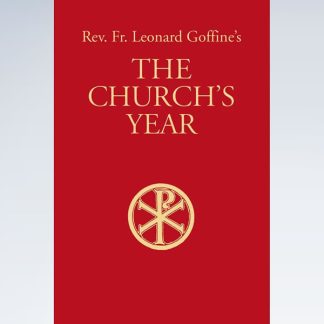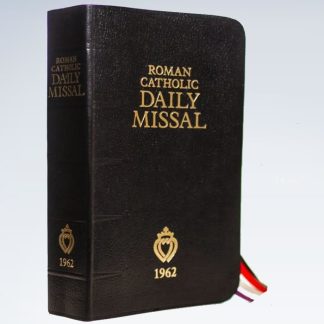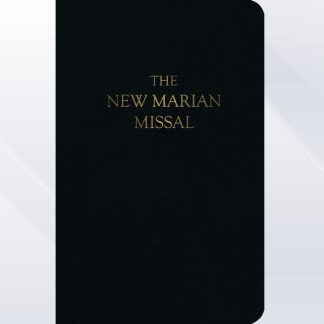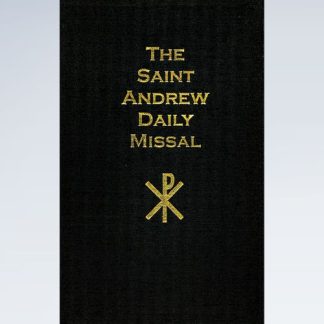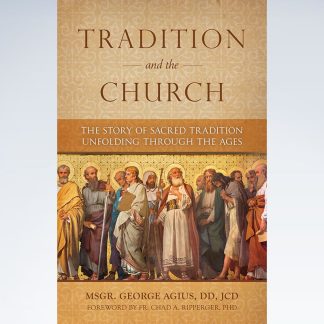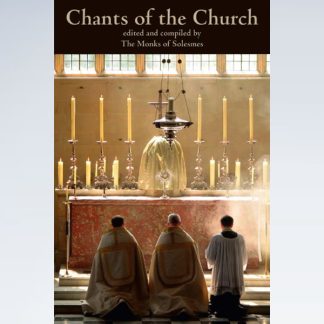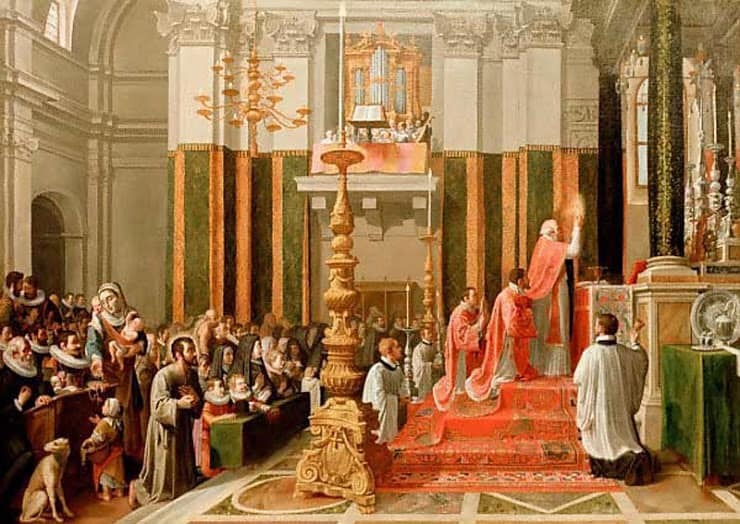

The Introit of this day’s Mass – the 4th Sunday of Lent, begins with the word Lætare:
“Lætare, Jerusalem; et conventum facite omnes, qui diligitis eam: gaudete cum laetitia, qui in tristitia fuistis: at exsultetis et satiemini ab uberibus consolationis vestræ. Lætatus sum in his quæ dicta sunt mihi: in domum Domini ibimus,”
“Rejoice, O Jerusalem, and come together all you that love her; rejoice with joy you that have been in sorrow: that you may exult, and be filled from the breasts of your consolation. I rejoiced at the things that were said to me: We shall go into the house of the Lord.”
“Let us rejoice, then, children of Jerusalem and no longer of Sinai! The mother who gave birth to us, the holy Church, is not a slave, she is free; And it is for freedom that it has brought us to light. Israel served God in terror; His heart, always inclined to idolatry, needed to be constantly pressed by fear, and the yoke bruised his shoulders. Happier than he is, we serve out of love; and for us “the yoke is easy, and the burden is light” (Matt. 11:30). We are not citizens of the earth; we’re just going through it; our only homeland is Jerusalem from above. Sin held us captive; and the more the chains of our slavery weighed down upon us, the more we thought we were free. Let us give effusive thanks to our deliverer, who rescues us from the bondage of Hagar, who frees us from the terrors of Sinai, and, substituting ourselves for the ancient people, opens to us by his blood the gates of heavenly Jerusalem.” — Dom Prosper Guéranger, The Liturgical Year.
Instruction on preparation for Easter from the Church’s Year
Now the Pasch the festival day of the Jews, was near at hand. (John VI. 4.)
If we would sing a joyful Alleluia with the Church on the festival of Easter, we must fulfill her desire, and prepare ourselves to celebrate it worthily. Therefore, we should shun improper, clamorous meetings, and retire often to pray in solitude, especially to meditate on the bitter sufferings of our Saviour, for when man is alone, God speaks to his heart. (Osee. II. 14.) We should carefully examine our conscience, and consider how we stand before God, for upon this day shall be the expiation for you, and the cleansing from all your sins: you shall be cleansed before the Lord; for it is a Sabbath of rest, and you shall afflict your souls, that is, by fasting, watching, and praying. (Lev. XVI. 30-31.) From this Sunday until Easter we should fast more strictly, give more alms to the poor if we are able, or if poor ourselves, bear our poverty more patiently, offering it to Christ in union with His poverty, His hunger, thirst, etc. ; we should make a sincere and contrite confession, and purify our heart from the old leaven of iniquity, that we may keep the Easter meal with Christ in the unleavened bread of purity and truth. (I Cor. V. 7. 8.) For this end we should incite ourselves to holy desires, rise from sin, which is the death of the soul.

-
The Church’s YearUS$ 52.00
-
1962 Roman Catholic Daily MissalUS$ 72.00
-
1958 The New Marian Daily Missal (Latin & English)US$ 62.00
-
The Saint Andrew Daily Missal 1945 Edition (Gold Edges)US$ 82.00
-
Tradition and the ChurchUS$ 27.00
-
Chants of the Church by the Monks of SolesmesUS$ 25.00
VIRGÓ SACRÁTA is a Christian mission-driven online resource and shop inspired from the beauty of Catholic faith, tradition, and arts. Our mission is to “Restore All Things to Christ!”, in continuing the legacy of Pope St. Pius X under the patronage of the Blessed Virgin Mary. “Who is she that cometh forth as the morning rising, fair as the moon, bright as the sun, terrible as an army set in battle array?” O Mary, conceived without sin, pray for us who have recourse to Thee.

